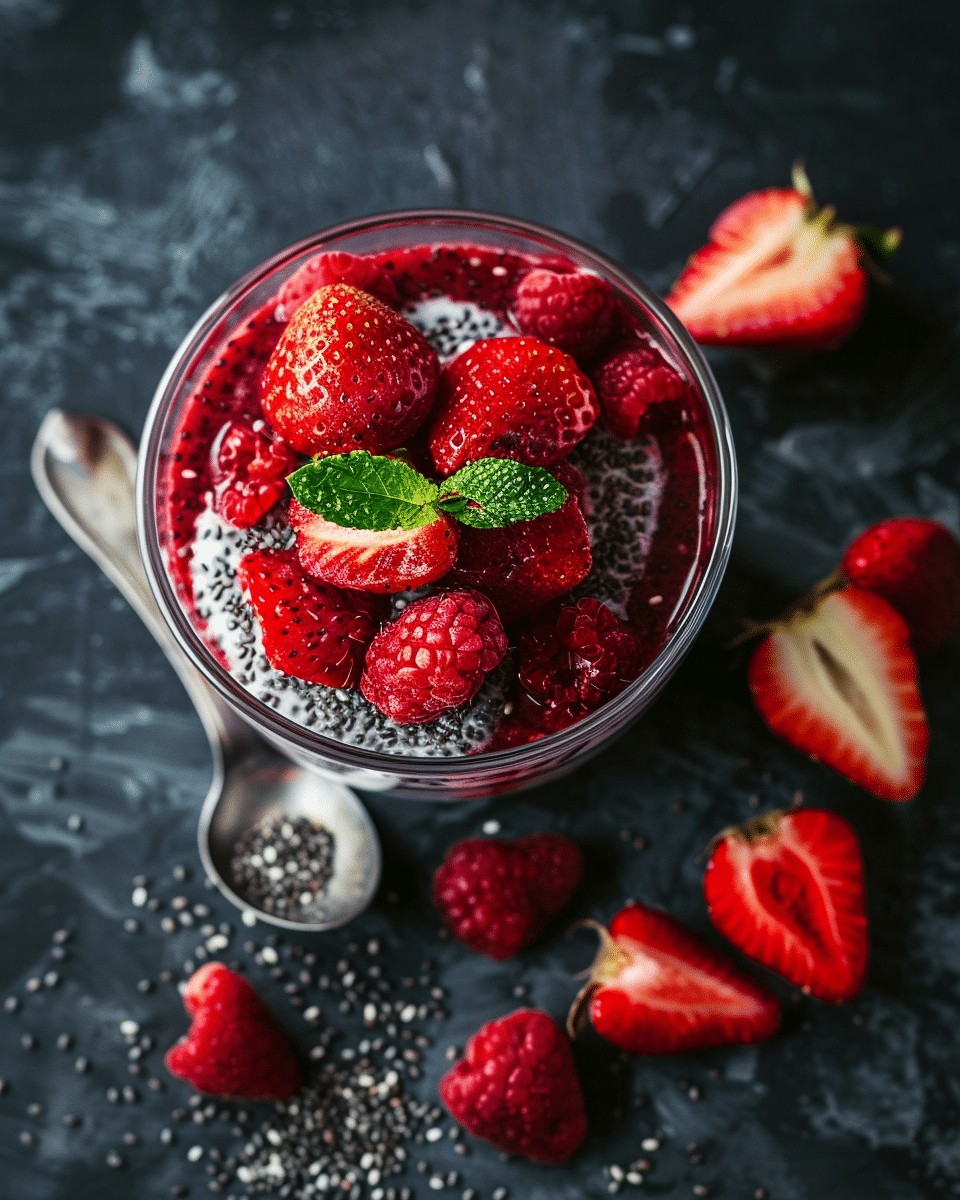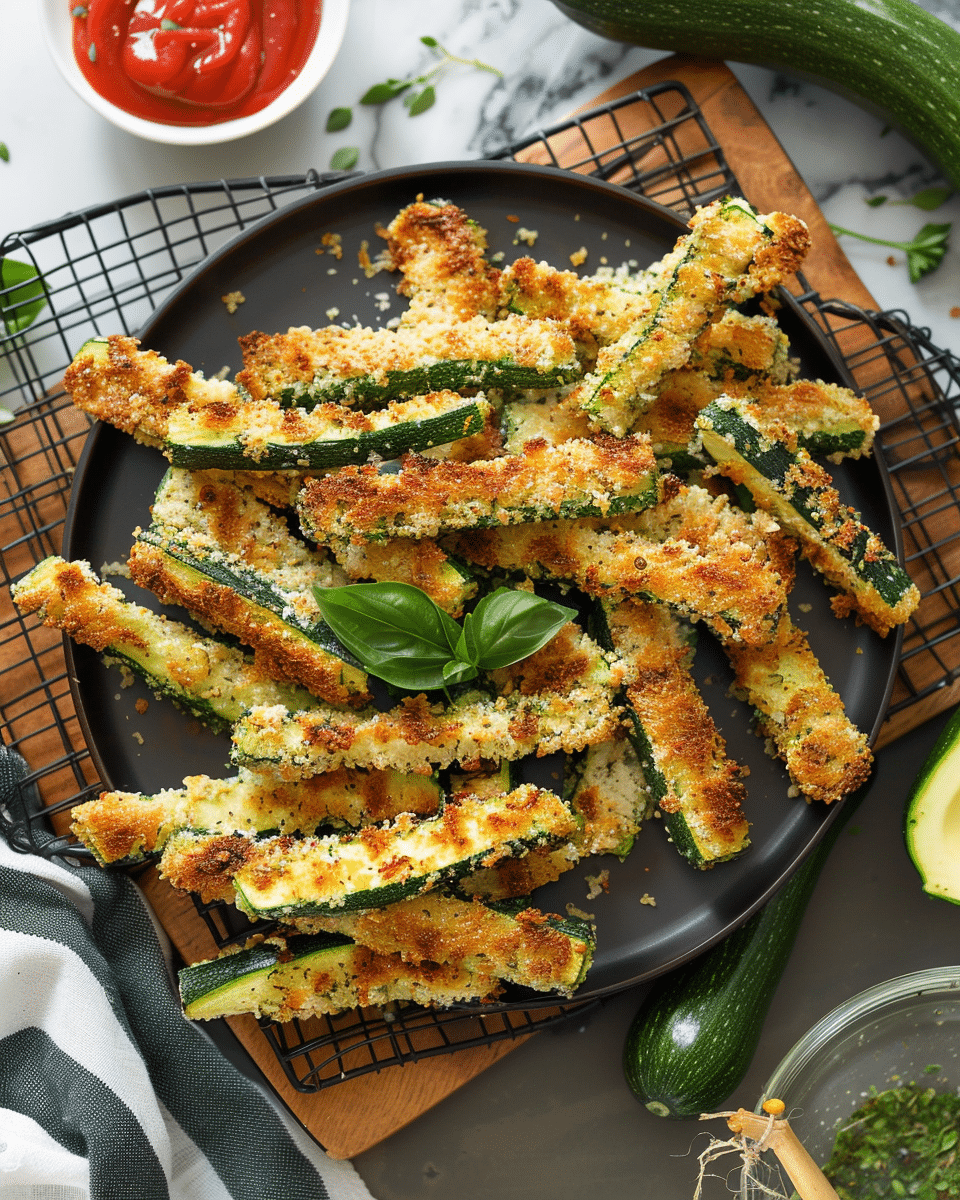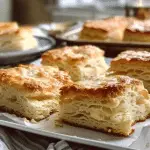Cheesecake, a delightful dessert that has won the hearts of many. But how long can you savor its creamy goodness once it’s in the fridge? Dive in to discover!
Cheesecake is more than just a dessert; it’s an experience. Its rich, creamy texture combined with a crumbly crust creates a symphony of flavors in the mouth. But, like all good things, cheesecake doesn’t last forever. The pressing question is, how long does cheesecake last in the fridge? Let’s unravel the mystery.
How Long Does Cheesecake Last in the Fridge?
Cheesecake is a delectable dessert that combines the richness of cheese with the sweetness of sugar and the crunchiness of its crust. But, like all desserts, it doesn’t last forever. The longevity of a cheesecake in the fridge depends on various factors, but here’s a general guideline:
-
Homemade Cheesecake:
- A typical homemade cheesecake, when stored properly in the refrigerator, can last for 5 to 7 days. It’s essential to keep it in an airtight container or wrap it tightly with plastic wrap or aluminum foil to prevent it from absorbing other odors in the fridge and to keep it fresh.
-
Store-Bought Cheesecake:
- Commercially prepared cheesecakes that are unopened can last up to 6-7 days past their ‘sell by’ date if stored in the fridge. Once opened, it’s best to consume them within a week for optimal freshness.
- Some store-bought cheesecakes contain preservatives that can extend their shelf life. Always check the expiration date and storage instructions on the packaging.
-
Cheesecake with Fresh Fruit Toppings:
- If your cheesecake has fresh fruit toppings or fillings, its shelf life might be shorter. Typically, it’s best to consume it within 3-4 days. The moisture from the fruit can make the cheesecake soggy and can also introduce microorganisms that speed up spoilage.
-
Slices vs. Whole Cheesecake:
- Individual slices of cheesecake tend to dry out faster than a whole cheesecake. If you’ve sliced into your cheesecake, it’s best to consume the slices within 3-4 days for the best quality.
- Individual slices of cheesecake tend to dry out faster than a whole cheesecake. If you’ve sliced into your cheesecake, it’s best to consume the slices within 3-4 days for the best quality.
Tips for Storing Cheesecake in the Fridge:
- Always allow your cheesecake to cool completely before refrigerating.
- Use an airtight container or wrap the cheesecake well to prevent it from absorbing other odors in the fridge.
- If you suspect that the cheesecake has been out at room temperature for more than 2 hours, it’s safer to discard it to avoid potential foodborne illnesses.
In summary, while cheesecake is a delightful treat, it’s essential to store it properly to enjoy its flavors fully. Always trust your senses: if the cheesecake smells off, has mold, or its texture seems unusual, it’s best to err on the side of caution and discard it.
Factors Influencing Cheesecake’s Shelf Life
Cheesecake, with its creamy texture and delightful taste, is a favorite dessert for many. However, like all perishable foods, its freshness doesn’t last indefinitely. Several factors determine how long a cheesecake will remain good to eat once it’s made or purchased. Let’s delve into these factors:
-
Ingredients Used:
- Dairy: Cheesecakes primarily consist of dairy products like cream cheese, sour cream, or heavy cream. Dairy is perishable and can spoil quickly if not stored correctly.
- Eggs: Another primary ingredient in many cheesecake recipes, eggs can also influence the dessert’s shelf life.
- Additives and Preservatives: Store-bought cheesecakes might contain preservatives that can extend their shelf life compared to homemade versions.
-
Storage Conditions:
- Temperature: Cheesecakes need to be stored in a cool environment. A fridge that’s too warm can cause the cheesecake to spoil faster.
- Humidity: High humidity can introduce moisture, leading to potential mold growth.
- Air Exposure: Cheesecakes stored in airtight containers or wrapped well will last longer as they’re less exposed to contaminants.
-
Presence of Toppings:
- Fresh Fruit: Cheesecakes topped with fresh fruit can spoil faster due to the moisture and perishability of the fruit.
- Sauces and Syrups: Some toppings, like caramel or chocolate sauce, might not impact shelf life as much as fresh toppings.
-
Packaging:
- Seal: A well-sealed cheesecake, whether in plastic wrap, foil, or an airtight container, is less prone to external contaminants.
- Store Packaging: Commercially sold cheesecakes are often sealed to extend shelf life.
-
Time Since Preparation:
- A freshly made cheesecake will naturally last longer than one that’s been sitting out for a while. Always consider when the cheesecake was made.
-
Handling and Exposure:
- Frequent Handling: Every time the cheesecake is taken out of the fridge and exposed to room temperature, its shelf life decreases.
- Cross-contamination: Using the same knife or utensils for different foods and then for the cheesecake can introduce contaminants.
In summary, while cheesecakes are undeniably delicious, they are also delicate when it comes to storage. Proper understanding and management of the factors influencing their shelf life ensure that you can enjoy this delightful dessert safely and at its best quality.
Related: Churro Cheesecake
Signs of a Spoiled Cheesecake
- Unpleasant Odor: A spoiled cheesecake will have a sour or off-putting smell. Fresh cheesecake should have a creamy and slightly sweet aroma.
- Mold Growth: If you see any mold on the surface or sides of the cheesecake, it’s a clear sign that it has gone bad. Mold can appear in various colors, including green, black, or white.
- Discoloration: Any discoloration or dark spots on the cheesecake can indicate spoilage.
- Altered Texture: If the cheesecake feels slimy or has a strange texture when touched, it might be spoiled.
- Taste: If you’re unsure about the other signs, a small taste can help. A spoiled cheesecake will have a sour or off taste.
- Expiration Date: Always check the expiration date if your cheesecake is store-bought. While it might still be good for a short period after the date, it’s best to be cautious.
Remember, when in doubt, it’s always safer to discard food that might be spoiled to avoid any potential health risks.
Tips for Extending Cheesecake’s Freshness
Want your cheesecake to last longer? Here are some pro tips:
- Refrigeration: Always refrigerate cheesecake if you’re not eating it immediately. It should be stored in the refrigerator for up to 5-7 days.
- Airtight Container: Store the cheesecake in an airtight container to prevent it from absorbing other odors from the fridge and to maintain its moisture.
- Freezing: If you don’t plan on eating the cheesecake within a week, consider freezing it. Before freezing, wrap the cheesecake tightly in aluminum foil or plastic freezer wrap, or place it in a heavy-duty freezer bag.
- Thawing: When you’re ready to eat the frozen cheesecake, it’s best to thaw it in the refrigerator overnight.
- Avoid Contamination: Use a clean knife every time you cut a slice to prevent introducing any contaminants to the remaining cheesecake.
- Check for Spoilage: Always check for signs of spoilage like an off-smell or mold before consuming older cheesecake.
Homemade vs. Store-Bought Cheesecake: A Comparison
Cheesecake, a beloved dessert worldwide, can be enjoyed in two primary forms: homemade and store-bought. Both have their merits and drawbacks, and the preference for one over the other often boils down to individual tastes and circumstances. Let’s delve into a detailed comparison of the two:
1. Taste and Freshness:
- Homemade:
- Taste: The flavor of a homemade cheesecake can be tailored to personal preferences. Whether you like it tangy, sweet, or with a hint of lemon, you have full control over the ingredients.
- Freshness: Since it’s made and consumed within a short time frame, homemade cheesecake tends to be fresher.
- Store-Bought:
- Taste: While many store-bought cheesecakes are delicious, they might have a more standardized flavor profile to cater to a broader audience.
- Freshness: Preservatives are often added to extend shelf life, which might affect the overall freshness and taste.
2. Convenience:
- Homemade:
- Requires time, effort, and planning. You need to shop for ingredients, prepare, bake, and allow it to set.
- Store-Bought:
- Perfect for impromptu occasions. Just pick it up from the store, and it’s ready to serve.
3. Ingredients and Health:
- Homemade:
- You have control over the ingredients, allowing for healthier substitutions or organic choices.
- No added preservatives or artificial flavors.
- Store-Bought:
- Might contain additives, preservatives, and artificial flavors.
- Nutritional information is usually available, helping those who are calorie-conscious.
4. Variety:
- Homemade:
- The sky’s the limit! From unique flavors to experimental crusts, you can get as creative as you want.
- Store-Bought:
- Offers a range of flavors, especially in larger bakeries or specialty stores. However, it might be limited to popular choices.
5. Cost:
- Homemade:
- Initial cost might be higher, especially if you need to buy certain ingredients or equipment. However, in the long run, making at home can be cost-effective.
- Store-Bought:
- Fixed cost. Depending on the brand and quality, it might be more expensive than homemade, especially for gourmet options.
6. Texture and Consistency:
- Homemade:
- Achieving the perfect texture might require some trial and error. However, once mastered, you can achieve your desired consistency every time.
- Store-Bought:
- Consistent texture, as it’s produced in bulk following a standard recipe.
The Science Behind Cheesecake’s Shelf Life
The shelf life of cheesecake, like many other foods, is influenced by a combination of factors including ingredients, storage conditions, and microbial activity. Let’s delve into the science behind the shelf life of cheesecake:
1. Ingredients:
- Dairy: Cheesecake is primarily made of cream cheese, which is a dairy product. Dairy products are perishable and can spoil if not stored properly. The fat content in cream cheese can go rancid over time, leading to off-flavors.
- Eggs: Many cheesecake recipes include eggs, which are another perishable ingredient. Eggs can harbor bacteria like Salmonella, which can multiply if the cheesecake is not cooked or stored correctly.
- Sugar: Sugar acts as a preservative by binding water molecules, making them unavailable for microbial growth. However, the amount of sugar in cheesecake is typically not enough to preserve it for extended periods.
2. Storage Conditions:
- Temperature: Cheesecake should be stored in the refrigerator at temperatures below 40°F (4°C) to slow down microbial growth. At room temperature, bacteria and molds can multiply rapidly, reducing the shelf life of the cheesecake.
- Humidity: High humidity can promote the growth of mold on the surface of the cheesecake. It’s essential to keep cheesecake in a sealed container to prevent moisture loss and protect it from external contaminants.
3. Microbial Activity:
- Bacteria: Pathogenic bacteria like Listeria monocytogenes can grow in refrigerated conditions and can be a concern in dairy products like cheesecake. Proper cooking and storage can minimize this risk.
- Molds: Molds are a common spoilage organism for cheesecakes, especially if they are exposed to air for extended periods. Molds can produce mycotoxins, which can be harmful if ingested.
4. Preservatives:
While traditional homemade cheesecakes might not contain preservatives, commercial cheesecakes might have added preservatives to extend their shelf life. These can include sorbates or benzoates, which inhibit microbial growth.
5. Packaging:
Airtight packaging can help extend the shelf life of cheesecake by preventing exposure to air and contaminants. Vacuum-sealing or using modified atmosphere packaging can further extend the shelf life of commercial cheesecakes.
Freezing Cheesecake: A Longer Preservation Method
Cheesecake, with its creamy consistency and delightful taste, is a dessert many cherish. But what if you’ve made too much or bought an extra piece and can’t consume it right away? Freezing is an excellent solution. Here’s how to do it right:
-
Preparation:
- Before freezing, ensure the cheesecake has completely cooled if it’s freshly baked.
- If your cheesecake has toppings, especially fresh fruit or whipped cream, consider removing them. These toppings might not freeze as well or could affect the texture when thawed.
-
Wrapping:
- Wrap individual slices or the whole cheesecake in plastic wrap, ensuring there are no exposed parts. This initial layer helps prevent freezer burn.
- For added protection, wrap the cheesecake again in aluminum foil. This double wrapping ensures the cheesecake remains moisture-free and retains its flavor.
-
Storage:
- Place the wrapped cheesecake in a freezer-safe bag or airtight container. If you’re freezing individual slices, consider placing a piece of parchment paper between slices to prevent them from sticking together.
- Label the bag or container with the date of freezing. This way, you’ll know how long the cheesecake has been stored.
-
Shelf Life in the Freezer:
- A properly stored cheesecake can last in the freezer for up to 6 months. While it might still be safe to eat after this period, the flavor and texture are best within this timeframe.
-
Thawing:
- When you’re ready to enjoy your frozen cheesecake, transfer it to the refrigerator and let it thaw for several hours or overnight. Thawing it slowly in the fridge ensures the cheesecake retains its texture and flavor.
- Avoid thawing cheesecake at room temperature, as this can lead to uneven thawing and potential bacterial growth.
-
Refrain from Refreezing:
- Once you’ve thawed frozen cheesecake, it’s best not to refreeze it. Refreezing can alter its texture and might compromise its taste.
- Once you’ve thawed frozen cheesecake, it’s best not to refreeze it. Refreezing can alter its texture and might compromise its taste.
Benefits of Freezing Cheesecake:
- Extended Shelf Life: Freezing allows you to enjoy cheesecake long after its typical fridge shelf life.
- Convenience: Having frozen cheesecake slices means you have a ready-to-eat dessert whenever the craving strikes.
In summary, freezing cheesecake is a practical method to prolong its shelf life and enjoy this delightful dessert at a later date. Proper wrapping and storage are crucial to ensure the cheesecake remains fresh and delicious once thawed.
Common Misconceptions About Storing Cheesecake
There are several misconceptions about storing cheesecake that can affect its quality and safety. Let’s address some of the most common ones:
1. Cheesecake Doesn’t Need Refrigeration:
- Misconception: Because cheesecake is baked, some people believe it doesn’t need to be refrigerated.
- Reality: Cheesecake is made primarily of dairy products, which are perishable. It should always be refrigerated to prevent spoilage and bacterial growth.
2. Freezing Ruins Cheesecake:
- Misconception: Freezing cheesecake will ruin its texture and flavor.
- Reality: Cheesecake can be successfully frozen for up to a month without significant loss of quality. However, it’s essential to wrap it tightly in plastic wrap or aluminum foil and store in an airtight container to prevent freezer burn.
3. All Cheesecakes Have the Same Shelf Life:
- Misconception: All cheesecakes, regardless of ingredients, have the same storage life.
- Reality: The shelf life of cheesecake can vary based on its ingredients. For instance, a cheesecake with fresh fruit toppings or fillings may spoil faster than a plain cheesecake.
4. Mold on Cheesecake is Safe to Eat After Scraping Off:
- Misconception: If mold appears on the surface, you can scrape it off and consume the rest.
- Reality: Mold can produce root-like structures that penetrate the food. Even if you scrape off the visible mold, harmful substances like mycotoxins might remain. It’s best to discard moldy cheesecake.
5. Store-Bought Cheesecakes Last Longer Than Homemade Ones:
- Misconception: Commercial cheesecakes have a longer shelf life than homemade ones.
- Reality: While some store-bought cheesecakes might contain preservatives that extend their shelf life, it’s not universally true. Always check the expiration date and store as recommended.
6. Cheesecake is Safe to Eat as Long as it Smells Okay:
- Misconception: If the cheesecake doesn’t have an off-odor, it’s safe to eat.
- Reality: Some harmful bacteria don’t produce noticeable odors. It’s essential to follow recommended storage guidelines and consume cheesecake within its recommended shelf life.
7. Cheesecakes are Fine to Sit Out During Parties:
- Misconception: It’s okay to leave cheesecake out for several hours during events or parties.
- Reality: Perishable foods, including cheesecake, should not be left out at room temperature for more than two hours. In hot weather (above 90°F or 32°C), this reduces to just one hour.
FAQs
How long does cake last in the fridge?
A typical cake, depending on its ingredients and whether it has perishable fillings or frostings, can last in the refrigerator for about 5 to 7 days. Cakes with cream, custard, or fruit fillings should be consumed sooner, typically within 3-4 days, for optimal freshness. Always store the cake in an airtight container to retain its moisture and prevent it from absorbing other odors in the fridge.
How long will homemade cheesecake last in the fridge?
Homemade cheesecake, when stored properly in the refrigerator, can last for 5 to 7 days. It’s essential to keep it in an airtight container or wrap it tightly with plastic wrap or aluminum foil to maintain its freshness. If the cheesecake has fresh fruit toppings, it’s best to consume it within 3-4 days as the moisture from the fruit can reduce its shelf life.
Can I freeze cheesecake?
Yes, you can freeze cheesecake! In fact, freezing is an excellent way to extend its shelf life. Before freezing, ensure the cheesecake has completely cooled if it’s freshly baked. Wrap the cheesecake (whole or in individual slices) in plastic wrap, followed by aluminum foil, and then place it in a freezer-safe bag or container. A properly stored cheesecake can last in the freezer for up to 6 months. When you’re ready to enjoy it, thaw the cheesecake in the refrigerator for several hours or overnight for the best texture and flavor.
How far in advance can you make cheesecake?
You can make cheesecake 1 to 2 days in advance of when you plan to serve it. This allows the cheesecake to set properly and develop its flavors. If you’re preparing for an event or gathering, making your cheesecake in advance can be a time-saver. After baking, let it cool completely, then refrigerate it. If you need to store it for a more extended period, consider freezing it following the guidelines mentioned above.
Conclusion: Enjoying Cheesecake at its Best
Cheesecake is more than just a dessert; it’s a celebration of flavors and textures that come together to create a culinary masterpiece. From its velvety filling to its crunchy crust, every bite is a testament to its timeless appeal. But like all good things, cheesecake’s quality can diminish over time if not stored and handled properly.
Understanding the nuances of storing cheesecake, whether in the fridge or freezer, ensures that you get to savor its richness in the best possible way. Proper storage not only extends its shelf life but also preserves its authentic taste and texture. Whether you’re indulging in a homemade slice or a store-bought piece, the essence lies in enjoying it fresh and at its peak quality.
Moreover, the versatility of cheesecake allows for various toppings and flavors, each bringing its unique twist to the classic. But regardless of the variant, the core principle remains the same: proper care leads to optimal enjoyment.
In the end, cheesecake is more than just a treat; it’s an experience. And with the right knowledge, you can ensure that every cheesecake experience is as delightful as the first. So, the next time you have a slice in front of you, remember the insights shared, take a moment to appreciate its beauty, and then dive into its creamy goodness, knowing you’re enjoying cheesecake at its absolute best.









